Customs of Chinese New Year
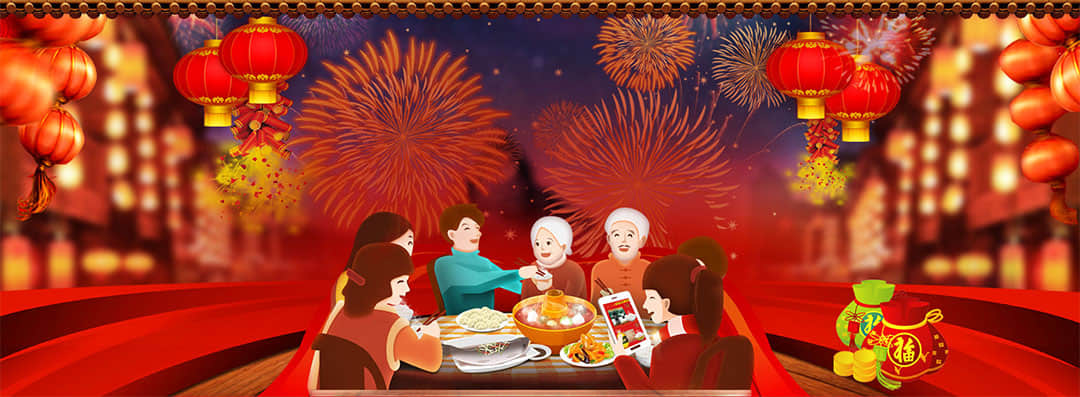
Chinese New Year’s day is on the first day of the first lunar month. It has thousands of years of history and has formed a long-standing customs, which have been passed down from generation to the next. The customs of Chinese New Year are endowed with heavy symbolic significance, and have turned into unique Chinese cultural symbols to convey people’s feelings and an understanding of happiness.
Before Chinese New Year
Worship the Stove God
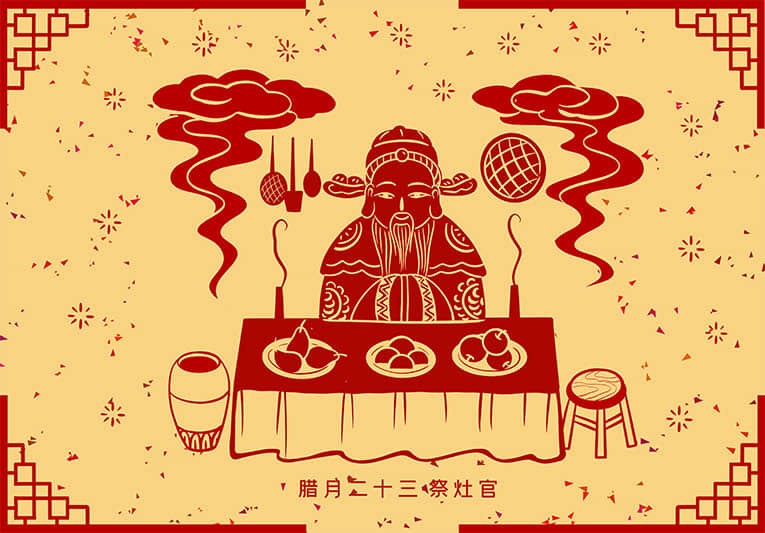
The Stove God in Chinese mythology is Zao Jun. People offer sacrifices on the altar. They usually prepare candy and water for the Stove God, and soya bean for his mount. After it has been melted, candy is spread on the mouth of the statue or image of the god to stop him from making critical remarks. This is because it is believed that the Stove God returns to heaven and reports to the Jade Emperor on the twenty third day of the twelfth lunar month. If people have committed evil deeds during the year, the Jade Emperor will punish them by shortening their lives. In short, this custom reflects ancient people’s respect for fire.
Clean the House
- Why do Chinese Clean their House Before the Chinese New Year
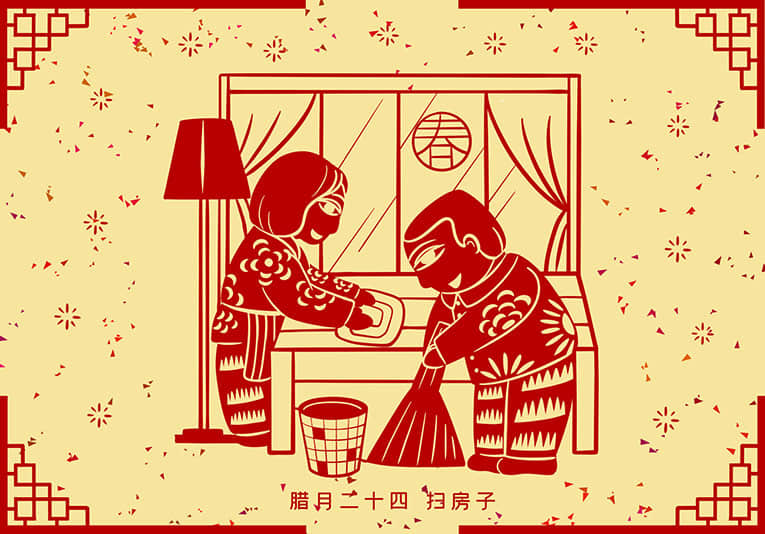
After worshipping the Stove God, every household starts to clean their house, which is called “sweeping the dust”. Everyone cleans their bedding, curtains and kitchenware in order to get rid of bad luck, farewell the old year, and welcome the New Year.
Purchases for Chinese New Year
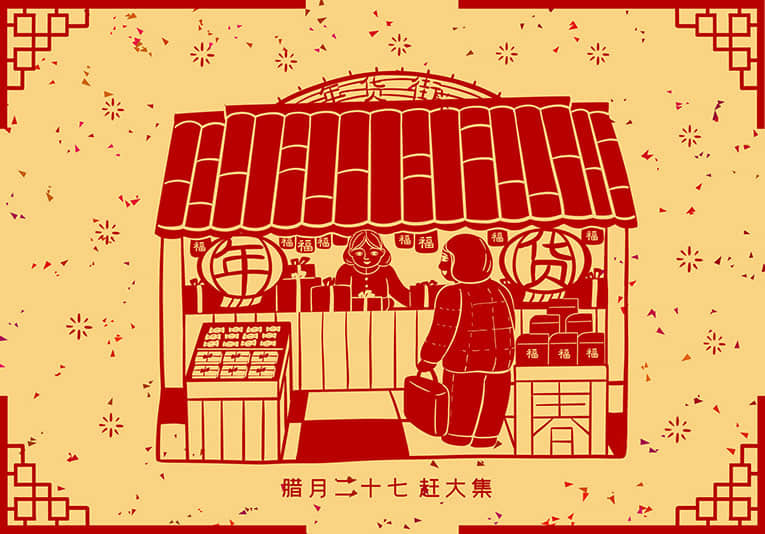
Chinese people buy lots of food, cooking ingredients, presents, clothes and even jewelry for the coming New Year. The presents are for visiting friends and relatives, the food and ingredients are for the reunion dinner and other meals during the entire holiday as food markets and supermarkets are closed for at least 2 days, and the new clothes are for the children to wear for the coming new year. So don’t be shocked if you find everyone’s shopping cart is full of a great many items in every supermarket.
Put up Paper-cutting
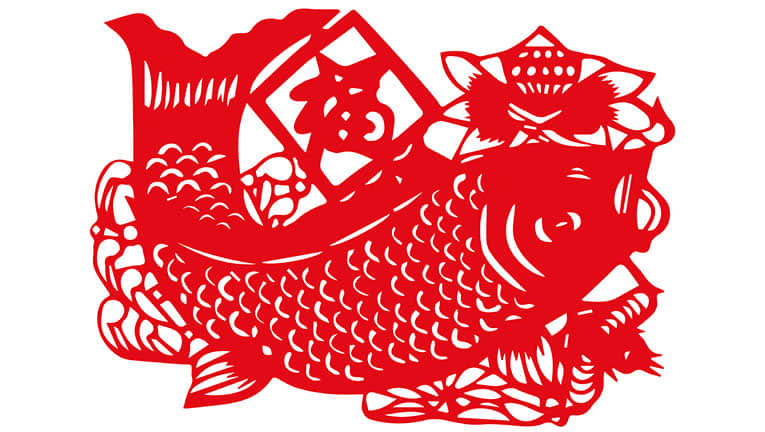
Women in northern China are talented in making paper-cuttings of beautiful flowers, lovely animals and lucky symbols. These are for decorating doors and windows. It is a traditional art style as well as a symbol of luck and domestic bliss.
Paste a Chinese New Year Couplet
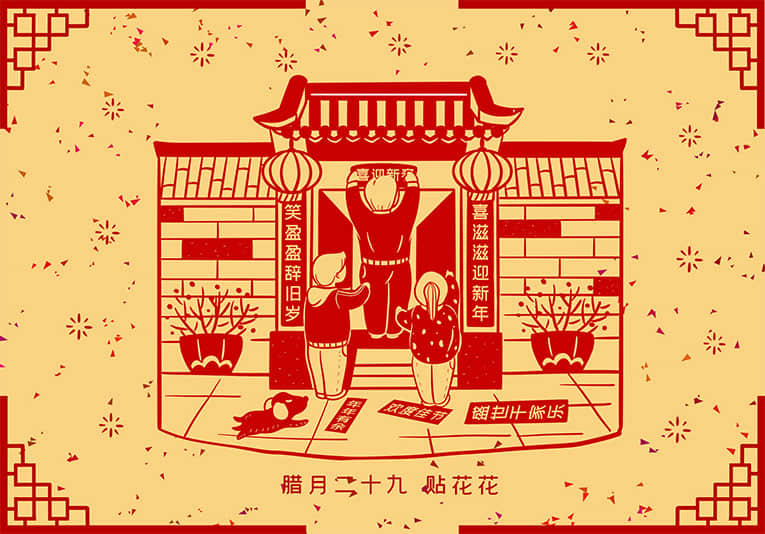
Every household pastes a Chinese new year couplet (Spring Festival Couplet) of poetry on the thirtieth day of December in the lunar calendar or even earlier. Some people like to create spring couplets inscribed in their own calligraphy.
A Chinese new year couplet will often be written on red paper in black ink and then pasted on each side of a door frame. It portrays the promise of a great future over the next year in a unique Chinese literary form in which words harmonize together like music with an equal number of Chinese characters in each of the two lines.
New Years Eve
Enjoy a Reunion Dinner
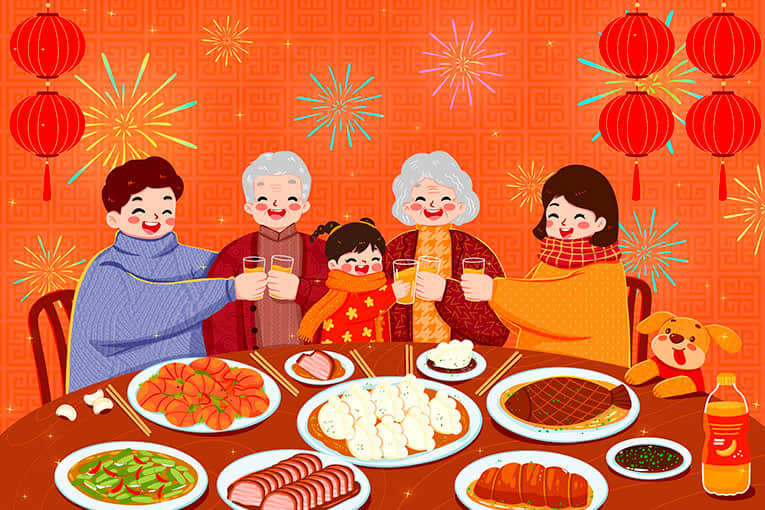
The reunion dinner is a big deal. It’s Prepared in advance on New Year’s Eve, and a ton of exquisite dishes are served. You have got to have chicken and fish for the reunion dinner, which stand for happiness and abundance in the new year. The whole family enjoys a sumptuous meal together and shares lots of love and togetherness.
Watching CCTV Spring Festival Gala
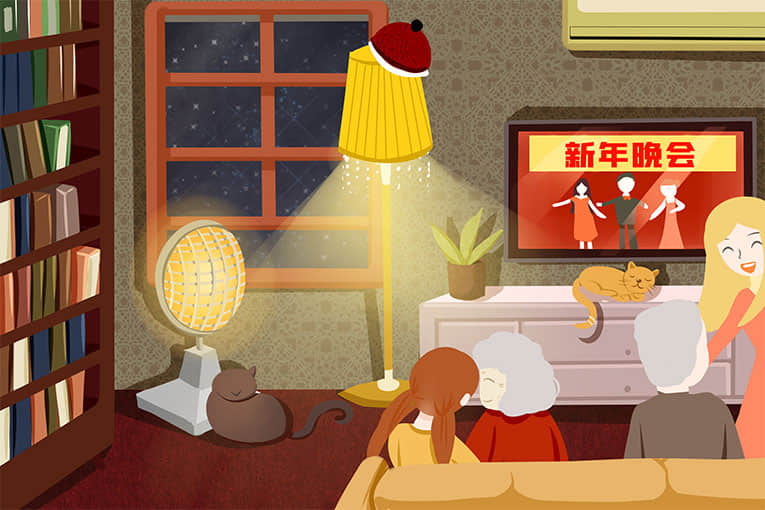
China Central Television’s (CCTV) annual Spring Festival Gala is a big deal of activities for celebrating the Chinese New Year. It is a massive variety shows with singing, dancing, comedy and folk art.It’s like families gather, eat, and watch the show together until late at night.
Burn Firecrackers and Fireworks
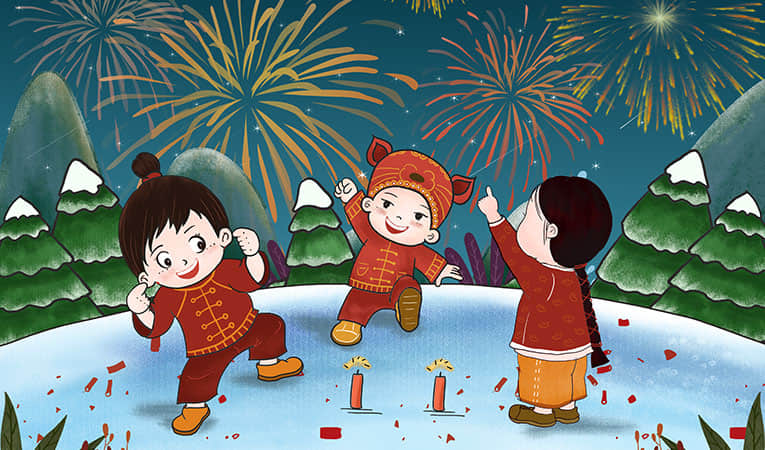
When the New Year’s bell chimes, all of the cities are burst into live with the sounds of firecrackers and fireworks. It is believed that the loud sounds and the flame could frighten away misfortune and the legendary “Monster Nian” (which in traditional stories showed up every year around New Year’s Eve), and thus nowadays, this custom is an integral part of the festivities. It conveys a joyous mood and best wishes for a rosy future.
During the Chinese New Year
Dragon and Lion Dance
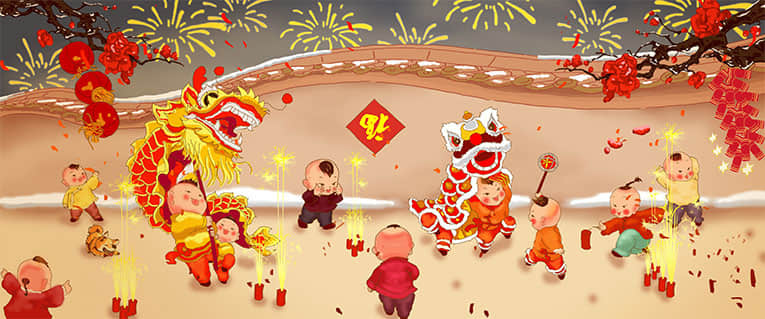
The dragon and lion dance is intended to scare away ghosts and beasts. This is a lively traditional dance that combines cultural elements with martial arts skills. The lion symbolizes courage and power, and the dragon in Chinese legend is said to bring good luck and ward of calamities. The dance is performed as a way to usher in a new year.
Pay a New Year Call
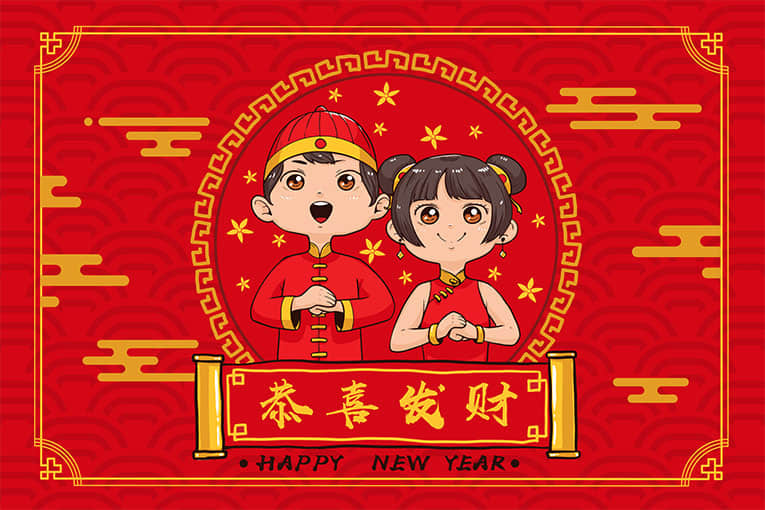
Paying a New Year call is a traditional Chinese custom for expressing good wishes, which usually starts with close family, and then extends to visiting relatives and friends. Generally, young people offer warm greetings elders, in return, they usually receive lucky red envelopes.
OR
Are you eager to begin your Chinese cultural journey?
Drop us a line and we will promptly connect you with our leading China expert!
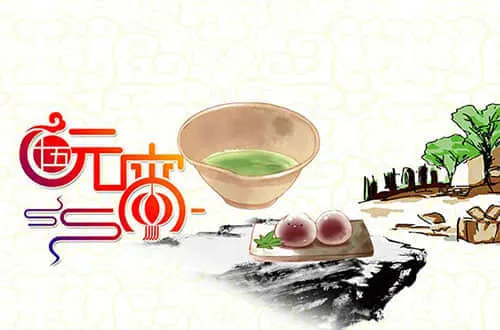 Chinese Lantern Festival
Chinese Lantern Festival 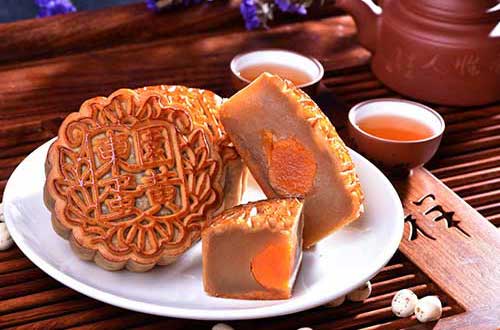 Mid-Autumn Festival
Mid-Autumn Festival 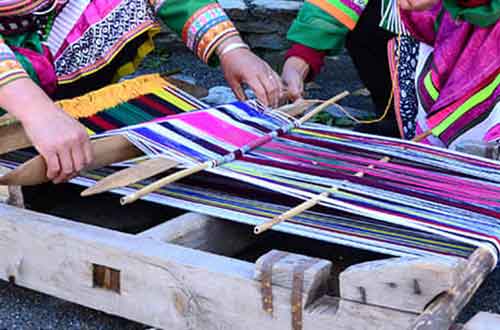 How do People Celebrate the Double Seventh Festival?
How do People Celebrate the Double Seventh Festival? 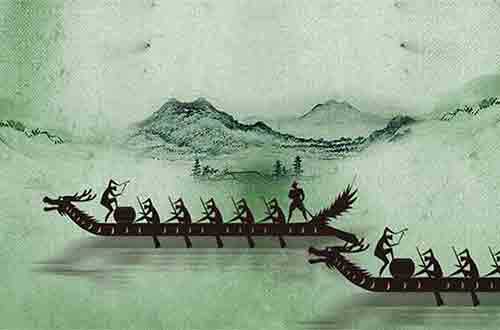 Dragon Boat Festival Facts, History and Traditions
Dragon Boat Festival Facts, History and Traditions